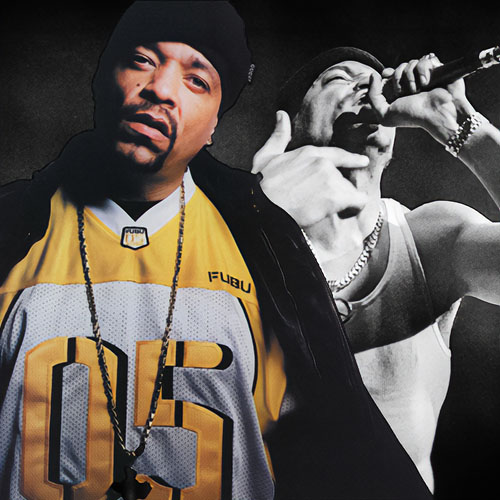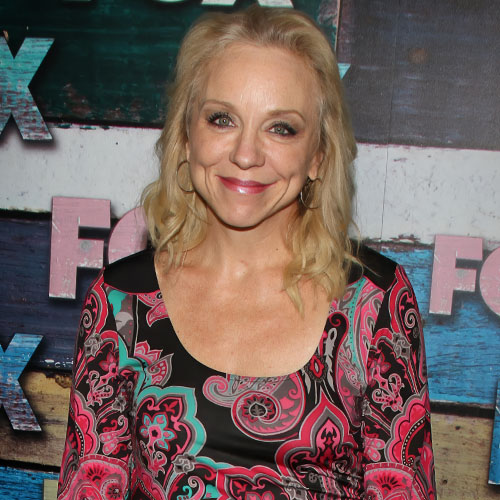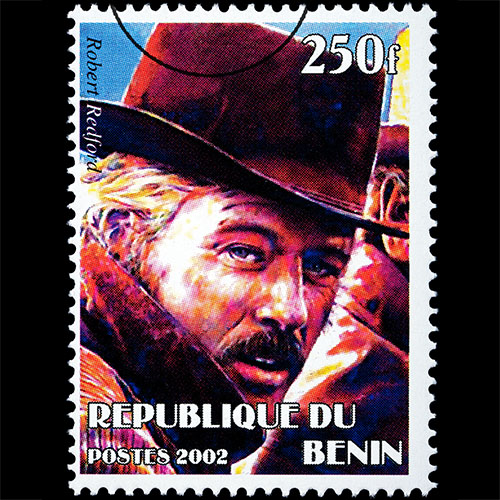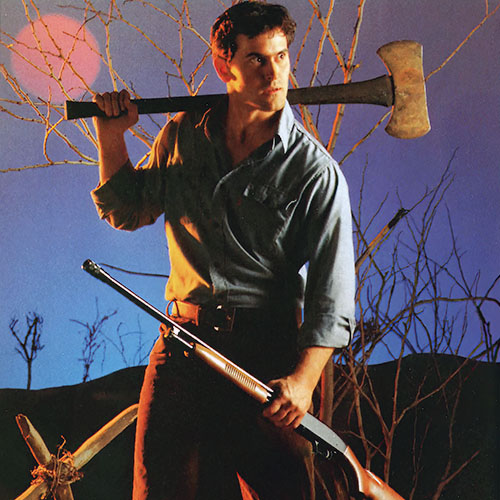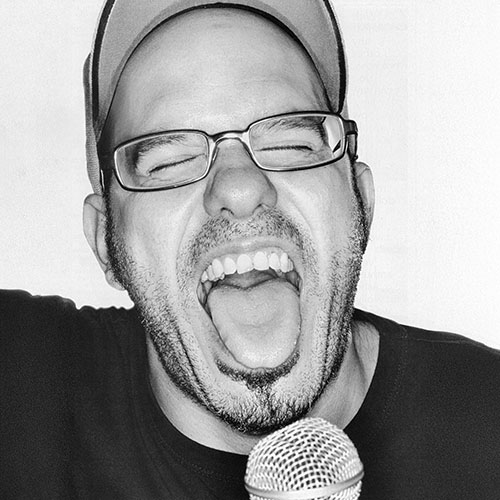An interview with the most controversial director in America about his most controversial film to date: Malcom X.
When Spike Lee released Do the Right Thing in 1989, Universal Pictures and much of the press believed that it would spark a race riot. Do the Right Thing did not trigger unrest. Two years later, press and public feared that John Singleton’s Boyz N the Hood would start racial trouble. Boyz did not cause rioting. (A few L.A. gang members were denied entry to the film when they roughed each other up after a theater oversold the house. They had not even seen the movie.) Some weeks later, press and public believed Mario Van Peebles’s New Jack City would provoke black unrest, which it did not do. This month Spike Lee releases his film biography of Malcolm X, the man touted for 35 years as the instigator of violent racial revolution, which has not erupted. While Malcolm X was in postproduction, an all-white jury acquitted five white policemen of the 56-blow beating of a black man named Rodney King, to whom the officers wished to give a speeding ticket. The press and public had not worried that acquittal would spark a race riot. Again they were wrong. Malcolm X follows the black leader from his pimping and thieving days in Boston and New York through his Muslims and his founding, years later, of the nonsectarian Organization of AfroAmerican Unity, dedicated to the potential of mutual respect between blacks and whites. Tensions and jealousies among the Black Muslims led to Malcolm’s dismissal and finally to his murder in 1965 at the age of 39 by, as Lee wrote, “those he sought to reclaim.”
Lee finished his film, based on Alex Haley’s The Autobiography of Malcolm X, amid a few well publicized struggles. When Norman Jewison (In the Heat of the Night, A Soldier’s Story) was slated to direct, Lee and other African-Americans protested that the biopic should be made by an African American director. Denzel Washington (Cry Freedom, Glory, A Soldier’s Story) was signed on for the role of Malcolm, and the directing slot was handed to Lee, who went over budget. With costs in the $40 million range (rather than the $28 million limit set by Warner Bros.), Lee contributed two million of his three-million-dollar salary to the project, and a group of prominent blacks-including Bill Cosby, Oprah Winfrey, Michael Jordan, and Magic Johnson-raised the rest to return Malcolm X to Lee’s hands.
Born in Atlanta in 1958, Spike Lee’s first feature, She’s Gotta Have It (at a budget of $175,000), earned him tile Prix de Jenuese Award at the Cannes Film Festival. Do the Right Thing won an Academy Award nomination for Best Original Screenplay, and received the Best Director Award from the Los Angeles Film Critics Association. In addition to his films, Lee is known for the music videos of such artists as Miles Davis, Tracy Chapman, Branford Marsalis, and Public Enemy, for his TV commercials, and for his five books on the making of his films.
Do the Right Thing ends with quotes from Martin Luther King and Malcolm X, suggesting two possible films for you to make.
There were never two alternatives. Malcolm’s is the more interesting life to me, the more interesting beliefs — not that there shouldn’t be a film on Dr. King. I talked to a lot of people who knew Malcolm…
How did you find them?
They came to me.
Did you make Malcolm X to reintroduce him as a hero to young people?
That’s one reason. But many black kids know about Malcolm through rap music. Maybe this film will be the book they haven’t read yet, because most people don’t read today. That’s got to change. Many people will read the [Alex Haley] autobiography after seeing the film.
Were you finally satisfied with the financing of the film?
No. But I’m not impossible to satisfy, I’ve been satisfied before. I’ve never gone over budget in the past, as I did now. The cost came close to $40 million. Dan Aykroyd got $45 million to do Nothing But Trouble, and he’d never directed a movie before. Malcolm X is an epic. It covers four decades, has a 190- page script, and will be close to three hours and 20 minutes long. You can’t just shoot it in a couple of blocks of Harlem. We went to Egypt, Africa, and sent a second unit of Muslim filmmakers to Mecca.
You weren’t allowed into Mecca?
I’m not Muslim.
Are you religious?
Not really. I was brought up Baptist. I don’t grasp organized religion but I believe in a higher being.
In the past you’ve spoken highly of Norman Jewison’s work. Do you still admire him?
I do. My objection to his doing Malcolm X has nothing to do with admiring his other films, it’s that a white director couldn’t do this one. It would’ve been fucked up and there would’ve been an outcry from the black community that no PR campaign could manage.
I’ll never say that whites can make films only about whites and blacks only about blacks, but in some cases it makes a difference. You can’t say that Coppola’s being an Italian-American didn’t enhance The Godfather series. It did. The people who talked to me about Malcolm wouldn’t have talked to a white director. They wouldn’t trust him.
Some blacks didn’t trust you with the project.
Amiri Baraka made some statements to the press that I was too bourgeois to make Malcolm X. You know Baraka? He used to be called LeRoi Jones.
You say Malcolm was not a violent man. What does “by any means necessary” mean?
Some people interpreted it to mean violence. I think Malcolm was talking about self-defense.
What is the line between self-defense and violence?
A blurred one. The media wanted to give Malcolm the image of a violent man and a racist, which isn’t true. My film shows his evolution from hustler, pimp, and dealer to turning himself around. This transition is possible. It’s why he wrote about his life, to show that it can be done. We can elevate ourselves.
What would Malcolm have said about the riots that followed the Rodney King verdict in Los Angeles?
The same things he was saying 25 years ago. Racism hasn’t changed.
Some blacks criticized the rioters for looting their own neighborhoods.
By the second day they had gotten to the white communities, and that’s when the National Guard was called in. Rioting in South Central L.A. is okay, but not in Beverly Hills. That’s what makes this different from the Watts riots in the sixties. Blacks got smart and went to the suburbs.
Were you surprised that no riots erupted in New York?
The mayor, David Dinkins, had a lot to do with keeping the calm. Had Ed Koch still been mayor, I can tell you there would’ve been riots. He promoted racial disharmony to get votes. We like to think that Do the Right Thing had a little to do with getting Koch out of office.
Who would you tell people to vote for in the presidential election?
I wish I could tell people to vote for someone who’d make a difference. Jesse Jackson would be a good president, but that’s not reality. America isn’t ready for a black president.
What do you think of Bush’s comment that welfare programs made blacks in L.A. riot?
I think Bush regrets that remark — he’s been so strongly attacked for it. The Reagan cutbacks on social programs are responsible for riots. When education sucks, that’s responsible. The government spends more on the military than on food; that’s responsible.
Will what happened in L.A. make any difference?
I think so.
So change can happen only when white people are afraid.
Sometimes.
Tension between Koreans and blacks, as in the L.A. riots, was already represented in Do the Right Thing.
There’s bad blood between Koreans and blacks in the U.S. Koreans own a lot of stores and they don’t hire blacks — I’m not saying they should. A Korean store-owner in L.A. shot a black teenage girl in the back and got three years community service for it. Blacks are angry.
Were you surprised at the Rodney King verdict, especially after the whole world had seen the video of the beating on TV?
I was hurt but not surprised. But the next time cops are in that position, they’ll think twice about beating a man 56 times. They know now that there are ramifications.
It’s optimistic of you to think that conditions for blacks will change, especially as the economic gap between rich and poor has been widening over the last decade.
That gap has got to narrow or we’ll have civil war. You can’t flaunt wealth and expect the rest of the people not to react. That’s why the riots were in L.A. — the gap is so big there between movie stars and the poor.
Who would win that war?
Both sides would lose.
Do you think racism in other parts of the world is as severe as in the United States? What about Europe’s new nationalisms?
I can’t speak fully because I’m not the Arab who’s having his head beat in, but have you ever heard of Le Pen? Mussolini’s granddaughter ran for office in Italy and won. Fascism is on the rise the world over.
In hard economic times people look for scapegoats — Jews, immigrants. The U.S. is using Japan as a scapegoat now for its economic problems. The Japanese are just making good products and people, including Americans, are buying them.
Immigrants standardly become middle class after one or two generations in America. That hasn’t been the pattern for blacks.
Koreans, for example, can get bank loans faster than most blacks, and immigrants never had the experience of slavery. They arrive with their language, families, and culture intact, while ours were stripped from us. For immigrants America is a place of opportunity, not the place where they were taught to hate themselves.
Blacks have been taught that they ain’t shit, ain’t never been shit, and ain’t going to be shit. They aren’t taught that Cleopatra was black, that we built the pyramids, that we developed certain math and engineering before anyone else. Toussaint L’Ouverture kicked Napoleon’s ass. Hannibal kicked Rome’s ass — that’s why there are so many dark Italians. If blacks knew this history, we’d feel better about ourselves, and that’s why it’s kept out of the history books. They want us to think Cleopatra was Elizabeth Taylor and Jesus was Willem Dafoe.
Are you making a historical film to correct omissions in school texts?
Not correct, augment. The multicultural movement in American education is trying to expand what is taught in the schools so we don’t leave out the Native American, for instance. This Christopher Columbus shit has got to stop. The system has to be revamped.
There is also a backlash against multiculturalism that says curricula should be based on quality, not race.
I expected a backlash. They’re not, going to give up the status quo without a fight.
Do you have a next film in mind?
No. I’m going to take a year off and executive produce young black directors making their first features.
Will you do any acting?
I don’t like acting: I act in my own movies because it helps get financing. I’m thought to be funny, I guess.
Is the Black New Wave still growing?
I hope it is. It’d be a quick death if it weren’t. But there’s a limit on the money that studios are willing to offer, and I include New Line Productions in that.
How do you feel when your films are criticized?
Criticism slides off my back. It’s always been part of my makeup, a certain confidence in myself. My parents always encouraged me and exposed me to the arts. My father is a musician and has done the scores for all my films. My mother was an art teacher.
That suggests the black middle class will produce more black middle class and the black underclass will be left to founder.
The black middle class has to care more about the people they left behind — not that the government shouldn’t do more. Some blacks make their money, get a house in the suburbs, and get negligent.
Does the absence of black jurors prevent black directors from getting international prizes?
No, but Cannes is an international festival and the jury should reflect that. Whoopi Goldberg may be the only black person to have ever been on the Cannes jury. I was asked to be on it last year, but I couldn’t be away from Malcolm X for two and a half weeks. If it comes down to me or a golden white boy like the Coen brothers or Steve Soderbergh [whose Barton Fink and sex, lies, and videotape won first prize in 1991 and 1989, respectively], they’ll choose the golden white boy.
Did you buy the ring you’re wearing or was it given to you? [It has a black hand entwined with a white.]
I bought it. You didn’t expect me to be wearing a ring like this, did you?
What percentage of the time can you afford to be angry about racial matters?
I’m reminded that I’m black every day. In New York if you’re black and you see a policeman coming towards you, you think about that. I’m amazed when people ask why blacks get angry. I get angry when I get asked stupid questions. It’s self-evident why blacks are angry. The L.A. riots shouldn’t have been a surprise to anyone, except maybe whites whose only contact with blacks is through Bill Cosby or Michael Jackson.
Are you harassed by the police?
Oh, they don’t want to do that. I have too high a profile. Denzel Washington, however, can’t get a cab. Wesley Snipes [White Men Can’t Jump] had a cop pull a gun on him because he was in a smart car. You know, a black man in a car is a suspect. The Rodney King verdict told us exactly how many rights blacks have in the U.S.: none.















